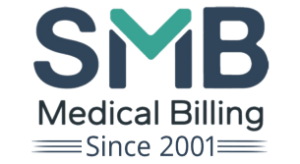Managing relationships with payers often demands administrative resources that many practices lack. However, aligning with payer networks can significantly enhance your revenue cycle, cash flow, and care quality.
To effectively nurture these relationships, it’s crucial to understand the payer’s role in the medical billing industry. Payers facilitate healthcare financing by reimbursing providers, yet their policies can complicate billing, diverting clinician time from patient care.
Shift your focus back to patient care with expert assistance from SMB Medical Billing.
Key Functions of Payers
The healthcare ecosystem comprises three main types of payers: public, commercial, and private. Public payers, such as Medicare and Medicaid, serve the largest number of members through government-funded insurance plans. Commercial payers, including organizations like Kaiser Permanente and UnitedHealth, follow closely behind in terms of membership numbers. Understanding these payer types is crucial for navigating the healthcare landscape effectively.
- Claim Processing: Payers receive and verify claims submitted by healthcare providers, ensuring they meet the necessary criteria for reimbursement.
- Claim Adjudication: They assess claims based on medical necessity, patient coverage, and contract terms to determine the appropriate payment amount.
- Payment Issuance: Payers disburse payments to healthcare providers for services rendered, ensuring that providers are compensated for their work.
- Network Management: Payers maintain networks of healthcare providers, ensuring that patients have access to quality care within their coverage plans.
- Customer Service: They provide support to both providers and patients, addressing inquiries, resolving disputes, and clarifying coverage and reimbursement details.
Addressing Healthcare Challenges with Payers
Despite their essential role, dealing with payers poses several challenges for healthcare providers:
- Billing Errors and Rejections: Incorrect coding or incomplete documentation can result in claim rejections, delaying reimbursements.
- Complex Reimbursement Processes: The intricate and diverse procedures for claim submissions are time-consuming and error-prone.
- Payment Delays and Denials: Delayed or denied payments adversely affect cash flow and financial stability.
- Contract Negotiations: Smaller practices often struggle to negotiate favorable reimbursement rates.
- Administrative Burden: Managing multiple payers increases administrative tasks, detracting from patient care.
- Appeals and Disputes: Handling denied claim appeals requires additional documentation and effort, further straining resources.
- Coverage Limitations: Navigating prior authorizations and coverage restrictions complicates timely patient care delivery.
Understanding these challenges can help healthcare providers find solutions to streamline their interactions with payers and improve overall efficiency.
How Medical Billing Outsourcing Transforms Revenue Management?
Outsourcing medical billing can alleviate many of these challenges by leveraging specialized expertise and technology to streamline billing processes.
- Improved Accuracy: Reduced errors in claim submissions leading to fewer rejections.
- Faster Reimbursement: Enhanced efficiency in processing claims results in quicker payments.
- Cost Savings: Lower administrative costs as the need for in-house billing staff and technology investments is minimized.
- Regulatory Compliance: Ensured adherence to the latest healthcare regulations and coding standards.
- Focus on Patient Care: Freed resources allow healthcare providers to focus more on delivering high-quality patient care.
Tap Into Our Expertise
Understanding the role of payers in the medical billing industry and the benefits of outsourcing can help healthcare providers enhance their operational efficiency and financial health. By addressing the administrative and financial complexities posed by payer interactions, providers can ensure a more sustainable and patient-focused practice.








